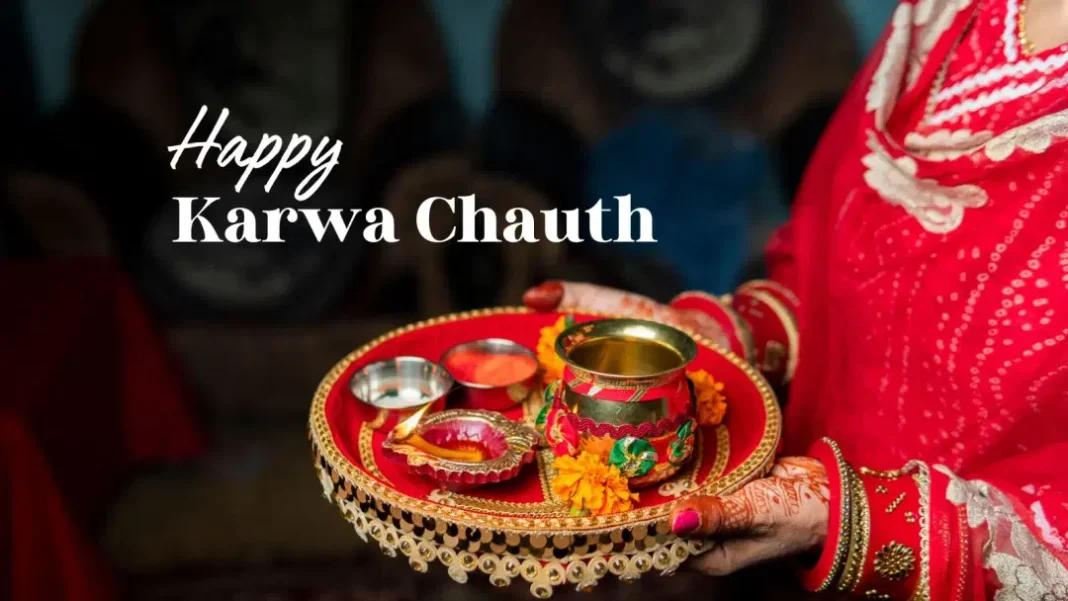Karwa Chauth 2025:
Across India, millions of married women observed the sacred festival of Karwa Chauth today, praying for the long life and prosperity of their husbands. The festival, celebrated primarily in North India, brought together tradition, devotion, and festivity in equal measure. From dawn to moonrise, women fasted without food or water — a ritual that signifies faith, endurance, and unconditional love.
A Festival Rooted in Faith and Culture
Karwa Chauth, one of the most revered Hindu festivals, falls on the fourth day after the full moon in the month of Kartik. The term ‘Karwa’ refers to an earthen pot used in rituals, while ‘Chauth’ means the fourth day. It is believed that women who observe this fast with pure devotion are blessed with a long and happy married life.
The day begins before sunrise with Sargi — a special meal prepared by the mother-in-law for her daughter-in-law. Women consume fruits, sweets, and dry fruits as part of this meal, which keeps them energized throughout the day. After that, they remain without food and water until the moonrise in the evening.
As dusk falls, women dress in traditional attire — usually red or maroon sarees or lehengas — symbolizing prosperity and marital bliss. They gather with family and friends for the Karwa Chauth puja, where they listen to the Karwa Chauth Katha (the story of Queen Veervati), exchange Karwas filled with gifts, and pray for their husbands’ well-being.
The Ritual of Moonrise
The most awaited moment of the day arrives when the moon rises. Women view the moon through a sieve and offer arghya (water) to it, reciting prayers. They then look at their husband’s face through the same sieve — a symbolic act that reflects devotion and gratitude. The fast is then broken as the husband offers the first sip of water and a sweet to his wife.
This tender moment, often shared under the moonlight, beautifully captures the emotional essence of Karwa Chauth — a silent promise of love, protection, and togetherness.
Blending Tradition with Modern Life
Despite changing lifestyles and the influence of modernity, Karwa Chauth continues to hold a special place in the hearts of Indian women. In today’s digital age, the festival has become a blend of devotion and celebration.
Social media was abuzz since morning with hashtags like #KarwaChauth2025, #MoonOfLove, and #SargiVibes trending across platforms. From Bollywood stars posting glamorous pictures in red sarees to young couples sharing their fasting stories, the spirit of the festival was felt across every corner of the country.
In cities like Delhi, Jaipur, Chandigarh, and Lucknow, markets were vibrant with festive energy. Jewelry shops, mehndi stalls, and salons witnessed heavy footfall. Designers showcased new festive collections, and restaurants offered special “Karwa Chauth thalis” for couples celebrating the evening together.
The Message of Equality and Companionship
In recent years, many men have also started observing fasts along with their wives as a gesture of equality and shared love. This shift highlights how the essence of Karwa Chauth is evolving — from being a ritual of one-sided devotion to a celebration of partnership and emotional balance.
“Karwa Chauth today is not just about tradition; it’s about celebrating togetherness,” said Radhika Sharma, a resident of Gurugram. “My husband and I both keep the fast — it makes the bond even stronger.”
Beyond Rituals: Spiritual and Health Significance
Interestingly, Karwa Chauth also aligns with the transition into Sharad Ritu (the autumn season), a time when the body benefits from detoxification and mental discipline. Fasting during this period is believed to purify both the body and the mind, bringing clarity, focus, and positive energy.
Sociologically, the festival strengthens family bonds, promotes social interaction, and offers women a collective space to celebrate and express their emotions.
The Eternal Essence of Karwa Chauth
Karwa Chauth remains a timeless celebration of love, sacrifice, and faith. In every household where the moon’s silver glow meets the light of a diya, the same story is retold — of a woman’s devotion and a couple’s shared journey through life.
While rituals may change with generations, the core emotion of Karwa Chauth — unconditional love and the prayer for togetherness — continues to inspire Indian culture. As the moon graced the sky tonight, countless women across India looked up with hope, love, and a silent prayer, turning the night into a beautiful reflection of eternal bonds.


